The National Scientific Advisory Board is comprised of experts in the fields of neuroscience, communication, child psychiatry, child psychology, pediatrics, education, information science, and public health who are passionate about advancing objective, high-level, evidence-based, multi-disciplinary research on the impact of digital media on children and adolescents. Our advisors serve 2 year terms and work with Institute staff to advance the organization’s goals, provide advice on and evaluation of the Institute’s work, strategy, structure and membership, peer review grant proposals to fund, help plan national conferences, and oversee working groups of experts and researchers on specific areas of interest.
National Scientific Advisory Board
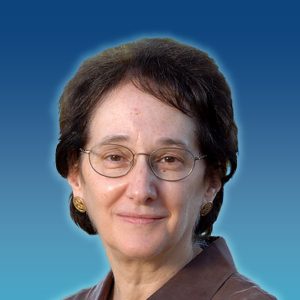 NAOMI BARON, PHD
NAOMI BARON, PHD
Professor Emerita of Linguistics, American University
Dr. Naomi S. Baron is Professor Emerita of Linguistics at American University in Washington, DC. She is a former Guggenheim Fellow, Fulbright Fellow, and Visiting Scholar at the Stanford Center for Advanced Study in the Behavioral Sciences. For the past thirty years, she has been studying the effects of technology on language, including the ways we speak, read, write, and think. Her previous books include Always On: Language in an Online and Mobile World (2008), Words Onscreen: The Fate of Reading in a Digital World (2015), and How We Read Now: Strategic Choices for Print, Screen, and Audio (2021).
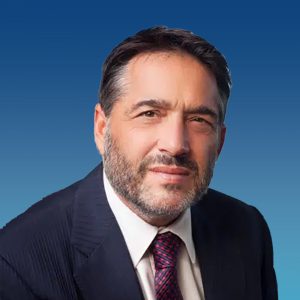 MATTHEW BERGMAN, JD
MATTHEW BERGMAN, JD
Founding Attorney, Social Media Victims Law Center; Professor, Lewis and Clark Law School
Matthew Bergman is an attorney, law professor, philanthropist and community activist. He is the founder of the Social Media Victims Law Center and Bergman Draper Oslund Udo; a professor at Lewis & Clark Law school; and member of the board of directors of nonprofit institutions in higher education, national security, civil rights, worker protection, and the arts. Matthew is nationally known for his work in product liability litigation and has recovered over $1 billion on behalf of his clients. He has litigated over 1,200 product liability cases, conducted over 25 jury trials, and has been counsel in over 20 reported appellate cases. Matthew has chaired and keynoted national and international seminars on toxic tort litigation and bankruptcy. He has testified before the U.S. Congress, was appointed to a dozen creditors’ committees in toxic tort cases, and serves the advisory committees of several multi-billion-dollar asbestos trusts. He has carried the fight for injured victims from the courthouse to federal and state legislatures and works closely with medical providers throughout the northwest.
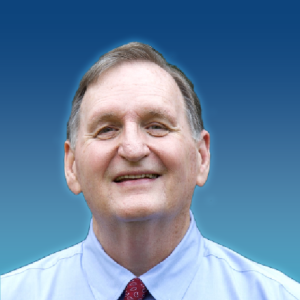 KELLY BROWNELL, PHD
KELLY BROWNELL, PHD
Dean Emeritus, Robert L. Flowers Professor Emeritus, and Director Emeritus of the World Food Policy Center, Sanford School of Public Policy, Duke University
Dr. Kelly Brownell is Dean Emeritus, Robert L. Flowers Professor Emeritus, and Director Emeritus of the World Food Policy Center at the Sanford School of Public Policy, Duke University. From 2013-2018 he served as Dean of the Sanford School of Public Policy at Duke. In 2006 Time magazine listed Kelly Brownell among “The World’s 100 Most Influential People” in its special Time 100 issue featuring those “.. whose power, talent or moral example is transforming the world.” Brownell was elected to membership in the National Academy of Medicine (formerly the Institute of Medicine) in 2006 and has received numerous awards and honors for his work, including the Lifetime Achievement Award from the American Psychological Association, Graduate Mentoring Award from Yale, the James McKeen Cattell Award from the New York Academy of Sciences, the Distinguished Alumni Award from Purdue University, the Lifetime Achievement Award from Rutgers University, and the Distinguished Scientific Award for the Applications of Psychology from the American Psychological Association. Prior to joining the faculty at Duke, Brownell was at Yale University where he was the James Rowland Angell Professor of Psychology, Professor of Epidemiology and Public Health, and Director of the Rudd Center for Food Policy and Obesity. While at Yale he served as Chair of the Department of Psychology and as Head of Silliman College. Dr. Brownell has published 15 books and more than 350 scientific articles and chapters. He has served as President of several national organizations, including the Society of Behavioral Medicine, Association for the Advancement of Behavior Therapy, and the Division of Health Psychology of the American Psychological Association. Dr. Brownell has advised the White House, members of congress, governors, state attorneys general. world health and nutrition organizations, and media leaders on issues of nutrition, obesity, and public policy. He was cited as a “moral entrepreneur” with special influence on public discourse in a history of the obesity field and was cited by Time magazine as a leading “warrior” in the area of nutrition and public policy.
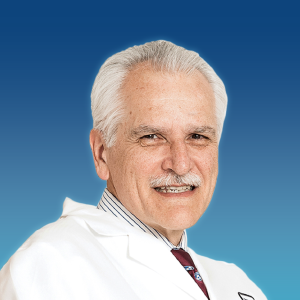 CHARLES CZEISLER, PHD, MD, FRCP
CHARLES CZEISLER, PHD, MD, FRCP
Baldino Professor of Sleep Medicine, Affiliated Faculty, Department of Neurobiology, Harvard Medical School; Senior Physician, Division of Sleep and Circadian Disorders, Departments of Medicine and Neurology, Bringham and Women’s Hospital
Dr. Charles A. Czeisler is the Baldino Professor of Sleep Medicine, Director of the Division of Sleep Medicine at Harvard Medical School and Chief of the Division of Sleep Medicine in the Department of Medicine at Brigham and Women’s Hospital in Boston, Massachusetts. Dr. Czeisler has more than 30 years’ experience in the field of basic and applied research on the physiology of the human circadian timing system and its relationship to the sleep-wake cycle. For more than a decade he served as Team Leader of the Human Performance Factors, Sleep and Chronobiology Team of NASA’s National Space Biomedical Research Institute, which is responsible for developing sleep-wake schedule guidelines and related countermeasures for use by NASA astronauts and mission control personnel during space exploration. Dr. Czeisler has served on and consulted to a number of national and international advisory committees, including the National Institutes of Health, the Institute of Medicine, the National Academy of Sciences, the Sleep Research Society, the Nuclear Regulatory Commission, the Air Force Office of Scientific Research, the Air Transport Association and the Federal Motor Carrier Safety Administration of the US Department of Transportation.
 ELIZABETH ENGLANDER, PHD
ELIZABETH ENGLANDER, PHD
Professor of Psychology; Director, Massachusetts Aggression Reduction Center, Bridgewater State University
Dr. Elizabeth Kandel Englander is a professor of Psychology and the founder and Director of the Massachusetts Aggression Reduction Center at Bridgewater State University, a Center which delivers programs, resources, and research for the state of Massachusetts and nationwide. She is a nationally recognized researcher and expert in the area of bullying and cyberbullying, childhood causes of aggression and abuse, and children’s use of technology.
 LAUREN HALE, PHD
LAUREN HALE, PHD
Professor of Family, Population, and Preventive Medicine, Stony Brook University School of Medicine; Founding Editor-in-Chief, Sleep Health
Dr. Lauren Hale studies the social patterning of sleep health and how it contributes to inequalities in health and well-being with current or previous funding from NICHD, NIDDK, NHLBI, and NIA. Dr. Hale has over 140 publications in peer-reviewed journal articles. Dr. Hale serves on the Board of Directors (Chair) of the National Sleep Foundation and is the founding Editor-in-Chief of the journal Sleep Health. She also serves on the Scientific Advisory Panel of the Pajama Program.
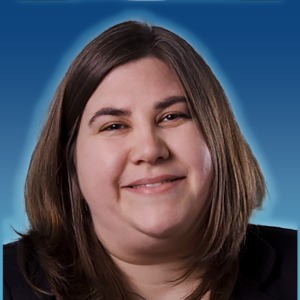 HEATHER KIRKORIAN, PHD
HEATHER KIRKORIAN, PHD
Laura M. Secord Chair in Early Childhood Development, Associate Professor and Chair, Human Development & Family Studies, School of Human Ecology, University of Wisconsin-Madison
Dr. Heather Kirkorian is an Associate Professor of Human Development and Family Studies at the University of Wisconsin-Madison. She received her Ph.D. (2007) in Developmental Psychology from the University of Massachusetts-Amherst where she also completed three years of postdoctoral training. Her research interests include the development of attention and learning, young children’s attention to and comprehension of video, and the impact of screen media on cognitive development. Her current projects address whether and how toddlers learn from interactive and non-interactive video as well as the impact of background television on the quantity and quality of infants’ solitary toy play and social interactions. Dr. Kirkorian’s research incorporates experimental research design, observational methods, and physiological measures such as eye tracking and heart rate.
 COLLEEN KRAFT, MD, MBA, FAAP
COLLEEN KRAFT, MD, MBA, FAAP
Pediatrician, Children’s Hospital Los Angeles; Professor of Pediatrics, Keck School of Medicine, The University of Southern California
Dr. Colleen A. Kraft is Professor of Pediatrics at the Keck School of Medicine/University of Southern California and Children’s Hospital Los Angeles. She is the 2018 Past President of the American Academy of Pediatrics. Her work includes integration of behavioral health and team-based care into primary care practice. Dr. Kraft received her undergraduate degree at Virginia Tech and her M.D. from Virginia Commonwealth University, and her MBA from the University of Cincinnati. She completed her residency in Pediatrics at Virginia Commonwealth University. As President of the American Academy of Pediatrics in 2018, Dr. Kraft is known for her advocacy to optimize the health of all children through technology and innovation. Her interests include the study of technology and its role in addressing health disparities and unconscious bias with children. She continues to speak for basic child rights for children throughout the world.
 BARNABY MARSH, PHD
BARNABY MARSH, PHD
Visiting Scholar, Princeton Institute for Advanced Study; Former Executive Vice President, John Templeton Foundation
Dr. Barnaby Marsh has created or has advised the structuring and creation of hundreds of philanthropic projects. An expert in risk-taking, new ventures, and communications, he has helped philanthropists realize their philanthropic goals under a wide range of demanding conditions, worldwide. Dr. Marsh’s expertise centers on creating new and original philanthropic initiatives, expanding frontiers in the sciences, and promoting new visions of human wellness and possibility. The results of his ideas and work have been featured in national print and broadcast media, and projects he has created have informed the policies and practices of the US, UK, and Chinese governments, among others. He is a proponent of integrating market forces in philanthropy, and of using prizes to encourage and celebrate breakthrough solutions. Dr. Marsh is a Summa cum laude graduate of Cornell University and has a doctorate from Oxford University, where he was a Rhodes Scholar. He currently holds affiliations at Harvard University and at the Institute for Advanced Study, Princeton.
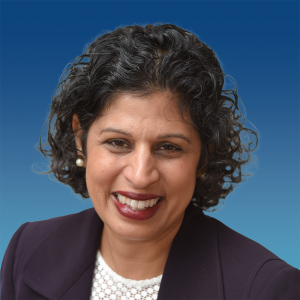 SUSMITA PATI, MD, MPH
SUSMITA PATI, MD, MPH
Professor and Chief, Division of Primary Care Pediatrics at the Renaissance School of Medicine; Chief Medical Program Advisor for the Alan Alda Center for Communicating Science®, Stony Brook University
Susmita Pati, MD, MPH is a nationally recognized physician-scientist with expertise in advancing health equity and workforce development via population health analytics, innovation, and system transformation. Her leadership experience includes roles and responsibilities to develop and advance the clinical, educational, and research missions at the departmental, school, university, and health-system levels in large academic medical centers. Dr. Pati is a tenured professor of pediatrics, the division chief of primary care pediatrics, and the Chief Medical Program Advisor for the Alan Alda Center for Communicating Science® at Stony Brook University. She officially joined the Alda Center in 2018 because her more than 20 years of experience has strengthened her belief that communication is fundamental to success in building strong health care delivery teams that, in turn, lead to joy and fulfillment at work. Dr. Pati earned an AB cum laude in Biochemical Sciences from Harvard University, a MD from the University of Connecticut, and a MPH in Epidemiology from Columbia University. She completed her pediatric residency and a general academic post-doctoral fellowship at Columbia University. She was the principal architect of the national award-winning Keeping Families Healthy program, whereby community health workers helped families achieve self-sufficiency in following clinical advice. Her leadership of the Hospital-Medical Home Demonstration project for Stony Brook Medicine achieved recognition from the National Committee for Quality Assurance with a focus on health equity and workforce development. Previously, she was faculty at the University of Pennsylvania and The Children’s Hospital of Philadelphia for 8.5 years where she served on the Dean’s program to recruit and retain women faculty in the School of Medicine.
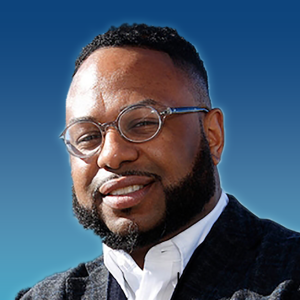 DESMOND UPTON PATTON, PHD
DESMOND UPTON PATTON, PHD
Brian and Randi Schwartz, University Professor; Director, SAFELab, University of Pennsylvania
Dr. Desmond Upton Patton is the Brian and Randi Schwartz University Professor and the thirty-first Penn Integrates Knowledge University Professor. He has joint appointments in the School of Social Policy & Practice and the Annenberg School for Communication along with a secondary appointment in the department of psychiatry in the Perelman School of Medicine. Professor Patton’s groundbreaking research into the relationship between social media and gang violence – specifically how communities constructed online can influence often harmful behavior offline – has led to his becoming the most cited and recognized scholar in this increasingly important area of social science. His early work attempting to detect trauma and preempt violence on social media led to his current roles as an expert on language analysis and bias in AI and a member of Twitter’s Academic Research advisory board and Spotify’s Safety Advisory Council. He created the Contextual Analysis of Social Media (CASM) approach to center and privilege culture, context and inclusion in machine learning and computer vision analysis. Patton is currently a member of the Committee on Scientific Freedom and Responsibility at AAAS.
 MARC POTENZA, MD, PHD
MARC POTENZA, MD, PHD
Professor of Psychiatry, Child Study Center and Neuroscience; Director, Division of Addictions Research at Yale; Director, Yale Center of Excellence in Gambling Research; Director, Yale Program for Research on Impulsivity and Impulse Control Disorders; Director, Women and Addictive Disorders Core of Women’s Health Research at Yale; Yale University School of Medicine
Dr. Marc Potenza is a board-certified psychiatrist with subspecialty training in addiction psychiatry. Currently, he is a Professor of Psychiatry, Child Study and Neuroscience at the Yale University School of Medicine, where he is the Director of the Yale Division of Addictions Research, the Center of Excellence in Gambling Research, the Women and Addictive Disorders Core of Women’s Health Research at Yale and the Yale Research Program on Impulsivity and Impulse Control Disorders. He is on the editorial boards of over fifteen journals (including editor-in-chief of Current Addiction Reports) and has received multiple national and international awards for excellence in research and clinical care. He has consulted to the Substance Abuse and Mental Health Services Administration, National Registry of Effective Programs, National Institutes of Health, American Psychiatric Association and World Health Organization (WHO) on matters of addiction. He has participated in two DSM-5 research work groups and six annual WHO meetings relating to Internet use and addictive behaviors in the ICD-11, addressing topics relating to gambling, gaming, impulse control, and addiction.
 STEPHANIE REICH, PhD
STEPHANIE REICH, PhD
Professor of Education, University of California, Irvine; Director of the Development in Social Context Lab
Dr. Stephanie Reich is a Professor of Education at the University of California, Irvine, with appointments in Informatics and Psychological Science. She is director of the Development in Social Context lab, member of the Connected Learning Lab, and fellow of both the American Psychological Association and the Society for Community Research and Action. Dr. Reich’s research focuses on understanding and improving the social context of children’s lives. As such, her empirical investigations center on direct, indirect, and reciprocal influences on children, specifically through the family, digital, and school environments. Her work spans from infancy through college, with particular focus on individual, familial, and community assets.
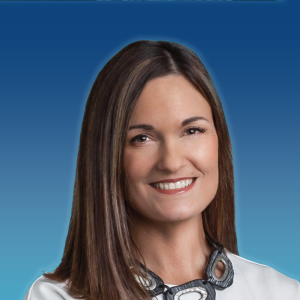 MORIAH THOMASON, PHD
MORIAH THOMASON, PHD
Barakett Associate Professor, Director of Pediatric Neuroimaging, Vice Chair for Research, Departments of Child and Adolescent Psychiatry and Population Health, New York University School of Medicine; Investigator, NYU Langone Neuroscience Institute
Dr. Moriah Thomason is the Barakett Associate Professor and Vice Chair for Research in the Department of Child and Adolescent Psychiatry at New York University Grossman School of Medicine. She is also faculty in the Department of Population Health and in the Neuroscience Institute. She formerly served as Director of the Perinatal Neural Connectivity Unit within the intramural Perinatology Research Branch of NICHD/NIH. Her published research addresses principles of neural development beginning in utero. Her current NIH grants examine environmental factors with potential to influence functional neurocircuitry of the developing brain. She received her undergraduate training at UC Berkeley, and her graduate and postdoctoral training at Stanford and MIT in Neuroscience. Her work has been featured on NPR All Things Considered, BBC World Service, Huffington Post, MIT Technology Review, New Scientist, and most recently, in Science, Nature Medicine and National Geographic. Many of her studies address disparities experienced by minoritized individuals and she has written multiple commentaries about the importance of population representative and culturally sensitive science. She is a standing member of the Child Psychopathology and Developmental Disabilities (CPDD) study section within the Center for Scientific Review, serves as an Associate Editor for the journal of Developmental Cognitive Science, and in 2019 received the honor of the Presidential Early Career Award for Scientists and Engineers (PECASE) from the Office of the President of the United States.
 ELLEN WARTELLA, PHD
ELLEN WARTELLA, PHD
Sheik Hamad bin Kalifa Al-Thani Professor of Communication Studies; Professor of Psychology, Professor of Human Development and Social Policy; Professor of Medical Social Sciences; Director of the Center on Media and Human Development, Northwestern University
Dr. Ellen Wartella is Al-Thani Professor of Communication, Professor of Psychology and Professor of Human Development and Social Policy at Northwestern University. She is a leading scholar of the role of media in children’s development and serves on a variety of national and international boards and committees on children’s issues. She is co-principal investigator of the Children’s Digital Media Center project funded by the National Science Foundation (2001-2011) and was co-principal investigator on the National TV Violence Study (1995-1998). She has published widely in communication and psychology journals on children’s media issues. Dr. Wartella earned her PhD in Mass Communication from the University of Minnesota in 1977 and completed her postdoctoral research in developmental psychology in 1981 at the University of Kansas. She was dean of the College of Communication at the University of Texas from 1993-2004 and Executive Vice Chancellor and Provost at the University of California-Riverside from 2004-2009. Before joining the faculty at Northwestern in March 2010 she was Distinguished Professor of Psychology at the University of California-Riverside.
 PAUL WEIGLE, MD
PAUL WEIGLE, MD
Child and Adolescent Psychiatrist, Associate Medical Director, Natchaug Hospital Ambulatory Service, Natchaug Hospital; Chair of the Media Committee, American Academy of Child and Adolescent Psychiatry
Dr. Paul Weigle is a Child & Adolescent Psychiatrist at Natchaug Hospital of Hartford Healthcare and teaches on the clinical staff at UConn School of Medicine and Quinnipiac Medical School. Dr. Weigle is a distinguished fellow of the American Academy of Child & Adolescent Psychiatry, and serves as co-chair of the Academy’s Media Committee as well as the National Scientific Advisory Board for the Institute of Digital Media and Child Development. He is a nationally recognized expert on the effects of screen media on mental health.